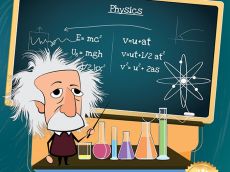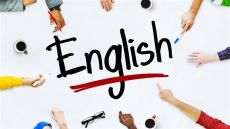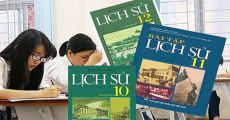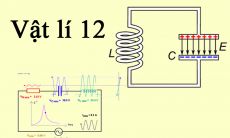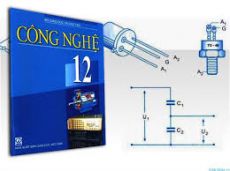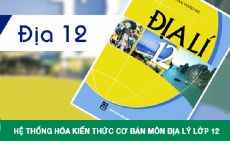Đề thi thử THPT QG năm 2022 môn Tiếng Anh
Trường THPT Lê Khiết - Quảng Ngãi
-
Read the passage and mark A, B, C, or D to indicate the correct word that best fits each of the blanks
The World Wide Fund for Nature (WWF) is an international non-governmental organization for the conservation research, and restoration of the environment. The organization was (1) ______ as a charitable trust on September 11, 1961, in Morges, Switzerland, under the name World Wildlife Fund. It was an initiative of Julian Huxley and Max Nicholson.
It is the world's largest independent conservation organization with over 5 million (2) ______ worldwide, working in more than 90 countries, supporting 100 conservation and environmental projects around the world. It is a charity, with (3) ______ 9% of its funding coming from voluntary donations by private individuals and businesses.
The group says its mission is "to halt and reverse the destruction of our environment". Currently, much of its work focuses on the conservation of three biomes that contain most of the world's biodiversity: forests, freshwater ecosystems, and oceans and coasts. Among other issues, it is also concerned (4) _______ endangered species, pollution, and climate change. The organization (5) ________ more than 20 field projects worldwide. In the last few years, the organization set up offices and operations around the world.
Câu 1:
(1) _________
A. discovered
B. produced
C. formed
D. used
-
Câu 2:
(2) _________
A. supporters
B. inhabitants
C. residents
D. citizens
-
Câu 3:
(3) _________
A. generally
B. commercially
C. approximately
D. individually
-
Câu 4:
(4) _________
A. upon
B. with
C. by
D. on
-
Câu 5:
(5) _________
A. walks
B. runs
C. goes
D. reaches
-
Mark A, B, C, or D to indicate the most suitable response to complete each of the following exchanges
Câu 6:
- “Did you get everything you wanted?”
– “_______.”
A. Yeah, more or less.
B. No, I didn't want anything.
C. Yes, why didn't I?
D. No, I didn't do anything.
-
Câu 7:
- “Don't tell anyone my phone number.” – “_______.”
A. I wouldn't
B. I can't
C. I don't
D. I won't
-
Read the passage and mark A, B, C, or D to indicate the correct answer to each of the questions
Not so long ago almost any student who successfully completed a university degree or diploma course could find a good career quite easily. Companies toured the academic institutions, competing with each other to recruit graduates. However, those days are gone, even in Hong Kong, and nowadays graduates often face strong competition in the search for jobs.
Most careers organizations highlight three stages for graduates to follow in the process of securing a suitable career: recognizing abilities, matching these to available vacancies and presenting them well to prospective employers. Job seekers have to make a careful assessment of their own abilities. One area of assessment should be of their academic qualifications, which would include special skills within their subject area. Graduates should also consider their own personal values and attitudes, or the relative importance to themselves of such matters as money, security, leadership and caring for others. An honest assessment of personal interests and abilities such as creative or scientific skills, or skills acquired from work experience, should also be given careful thought.
The second stage is to study the opportunities available for employment and to think about how the general employment situation is likely to develop in the future. To do this, graduates can study job vacancies and information in newspapers or they can visit a careers office, write to possible employers for information or contact friends or relatives who may already be involved in a particular profession. After studying all the various options, they should be in a position to make informed comparisons between various careers. Good personal presentation is essential in the search for a good career. Job application forms and letters should, of course, be filled in carefully and correctly, without grammar or spelling errors. Where additional information is asked for, job seekers should describe their abilities and work experience in more depth, with examples if possible. They should try to balance their own abilities with the employer’s needs, explain why they are interested in a career with the particular company and try to show that they already know something about the company and its activities.
When graduates are asked to attend for interview, they should prepare properly by finding out all they can about the prospective employer. Dressing suitably and arriving for the interview on time are also obviously important. Interviewees should try to give positive and helpful answers and should not be afraid to ask questions about anything they are unsure about. This is much better than pretending to understand a question and giving an unsuitable answer. There will always be good career opportunities for people with ability, skills and determination; the secret to securing a good job is to be one of them.
Câu 8:
Which of the following sentences is closest in meaning to the sentence “There will always be good career opportunities for people with ability, skills and determination, the secret to securing a good job is to be one of them”
A. The secret of a successful interview is that interviewers have to possess soft skills, determination or ability.
B. Graduates with the high qualification should always be able to find a good career.
C. Determined, skilled and able people can easily find a good career.
D. Graduates should have at least one of these areas to find a suitable career.
-
Câu 9:
In paragraph 1, "those days are gone, even in Hong Kong", suggests that _____.
A. nowadays, everyone in Hong Kong has an equal chance of finding a good career.
B. it used to be easier to find a good career in Hong Kong than in other countries.
C. in the past, finding a good career was more difficult than anywhere else.
D. it used to be harder to find a good job in Hong Kong than in other countries.
-
Câu 10:
In paragraph 3, "in more depth" could be _______.
A. more carefully
B. using more word
C. more honestly
D. in greater detail
-
Câu 11:
In paragraph 4, the writer seems to suggest that _______.
A. it is better for interviewees to be honest than to pretend to understand
B. it is not a good idea for interviewees to be completely honest in their answers
C. interviewees should ask a question if they can't think of an answer
D. pretending to understand a question is better than giving an unsuitable answer
-
Câu 12:
The word "recruit" in the first paragraph refers to _______.
A. sack
B. select
C. pursue
D. secure
-
Câu 13:
According to the passage, which of the following is NOT true?
A. Until recently it was quite easy for graduates to get good jobs in Hong Kong.
B. Businesses used to visit the universities in Hong Kong to recruit graduates.
C. Job seekers should consider as many as possible of the factors involved.
D. Graduates sometimes have to participate in competitions to secure a good career.
-
Câu 14:
The word "prospective" in paragraph 4 is closest in meaning to ______.
A. reasonable
B. ambitious
C. generous
D. future
-
Read the passage and mark A, B, C, or D to indicate the correct answer to each of the questions
An air pollutant is defined as a compound added directly or indirectly by humans to the atmosphere in such quantities as to affect humans, animals, vegetation, or materials adversely. Air pollution requires a very flexible definition that permits continuous change. When the first air pollution laws were established in England in the fourteenth century, air pollutants were limited to compounds that could be seen or smelled - a far cry from the extensive list of harmful substances known today. As technology has developed and knowledge of the health aspects of various chemicals has increased, the list of air pollutants has lengthened. In the future, even water vapor might be considered an air pollutant under certain conditions. Many of the more important air pollutants, such as sulfur oxides, carbon monoxide, and nitrogen oxides, are found in nature. As the Earth developed, the concentration of these pollutants was altered by various chemical reactions, they became components in biogeochemical cycles. These serve as an air purification scheme by allowing the compounds to move from the air to the water or soil. On a global basis, nature's output of these compounds dwarfs that resulting from human activities.
However, human production usually occurs in a localized area, such as a city. In such a region, human output may be dominant and may temporarily overload the natural purification scheme of the cycles. The result is an increased concentration of noxious chemicals in the air. The concentrations at which the adverse effects appear will be greater than the concentrations that the pollutants would have in the absence of human activities. The actual concentration need not be large for a substance to be a pollutant; in fact, the numerical value tells us little until we know how much of an increase this represents over the concentration that would occur naturally in the area. For example, sulfur dioxide has detectable health effects at 0.08 parts per million (ppm), which is about 400 times its natural level. Carbon monoxide, however, has a natural level of 0.1 ppm and is not usually a pollutant until its level reaches about 15 ppm.
Câu 15:
The word "dwarfs" in the second paragraph is closest in meaning to ______.
A. shortens
B. largens
C. lengthens
D. widens
-
Câu 16:
What does the passage mainly discuss?
A. How much harm air pollutants can cause.
B. The economic impact of air pollution.
C. What causes air pollution.
D. What constitutes an air pollutant.
-
Câu 17:
The word "adversely" in the first paragraph is opposite in meaning to _______.
A. quickly
B. considerably
C. admittedly
D. positively
-
Câu 18:
According to the passage, the numerical value of the concentration level of a substance is only useful if _____?
A. it is in a localized area
B. the other substances in the area are known
C. it can be calculated quickly
D. the natural level is also known
-
Câu 19:
For which of the following reasons can natural pollutants play an important role in controlling air pollution?
A. They function as part of a purification process.
B. They occur in greater quantities than other pollutants.
C. They are less harmful to living beings than other pollutants.
D. They have existed since the Earth developed.
-
Câu 20:
The word "detectable" in the third paragraph is closest in meaning to _______.
A. dangerous
B. separable
C. beneficial
D. observable
-
Câu 21:
The word "noxious" in the third paragraph is closest in meaning to _______.
A. toxic
B. natural
C. essential
D. organic
-
Câu 22:
According to the passage, human-generated air pollution in localized regions ___.
A. will damage areas outside of the localized regions
B. will react harmfully with natural pollutants
C. can be dwarfed by nature's output of pollutants
D. can overwhelm the natural system that removes pollutants
-
Mark the letter A, B, C, or D to indicate the word(s) CLOSEST in meaning to the underlined word(s) in each of the following questions
Câu 23:
Choose the word(s) CLOSEST in meaning to the underlined word(s): "What I've got to say to you now is strictly off the record and most certainly not for publication," said the government official to the reporter.
A. not popular
B. not yet official
C. beside the point
D. not recorded
-
Câu 24:
Choose the word(s) CLOSEST in meaning to the underlined word(s): Before the interview, you have to send a letter of application and your resume to the company.
A. photograph
B. curriculum vitae
C. recommendation
D. reference
-
Mark the letter A, B, C, or D to indicate the word(s) OPPOSITE in meaning to the underlined word(s) in each of the following questions
Câu 25:
Choose the word(s) OPPOSITE in meaning to the underlined word(s): "That is a well-behaved boy whose behavior has nothing to complain about"
A. behaving improperly
B. good behavior
C. behaving nice
D. behaving cleverly
-
Câu 26:
Choose the word(s) OPPOSITE in meaning to the underlined word(s): The consequences of the typhoon were disastrous due to the lack of precautionary measures.
A. severe
B. damaging
C. beneficial
D. physical
-
Mark A, B, C, or D to indicate the sentence that is closest in meaning to each of the following questions
Câu 27:
The meeting was put off because of pressure of time.
A. The meeting started earlier because people wanted to leave early.
B. The meeting was planned to start late because of time pressure.
C. The meeting lasted much longer than usual.
D. There was not enough time to hold the meeting.
-
Câu 28:
Only customers with coupons may use the service.
A. The service is restricted to customers in possession of coupons.
B. The service is available for coupons only.
C. Only rich customers can use the service with coupons.
D. Only customers with coupons are serviced here.
-
Câu 29:
Tom regrets to say that he has left his tickets at home.
A. Tom wishes he hadn't left the ticket at home.
B. Tom regrets leaving the tickets at home.
C. Tom was sorry that he has left the tickets at home.
D. Tom regrets to leave the ticket at home.
-
Mark the letter A, B, C, or D to indicate the word whose underlined part differs from the other three in pronunciation in each of the following questions
Câu 30:
Choose the word whose underlined part differs from the other three in pronunciation: heal, steal, deal, great
A. heal
B. steal
C. deal
D. great
-
Câu 31:
Choose the word whose underlined part differs from the other three in pronunciation: ocean, technician, commercial, necessary
A. ocean
B. technician
C. commercial
D. necessary
-
Mark A, B, C, or D to indicate the underlined part that needs correction in each of the questions
Câu 32:
Find the mistake: He smoked very much so he died for lung cancer.
A. smoked
B. for
C. so
D. very much
-
Câu 33:
Find the mistake: I enjoyed talking to the people with that I met at the party last night.
A. at the party
B. talking
C. with that
D. the
-
Câu 34:
Find the mistake: In case it will rain hard this afternoon, you should take the raincoat with you.
A. with
B. this afternoon
C. it will rain
D. take
-
Mark the letter A, B, C, or D to indicate the correct answer to each of the following questions
Câu 35:
Nowadays, with the help of the computer, teachers have developed a ______ approach to teaching.
A. multilateral
B. multiple-choice
C. multimedia
D. multilingual
-
Câu 36:
A large number of inventions and discoveries have been made _____ accident.
A. at
B. on
C. in
D. by
-
Câu 37:
Laser disc provides images of ________ either television signals or video tapes.
A. better quality than those of
B. better than
C. better quality than
D. better quality than of
-
Câu 38:
I live next to a nursing home for _______ very old.
A. the
B. an
C. Ø
D. a
-
Câu 39:
The pool should not be made so deep _______ small children can be safe there.
A. though
B. if
C. so that
D. so as to
-
Câu 40:
She asked me ______ I was looking at.
A. when
B. if
C. what
D. why
-
Câu 41:
Yes, the script was excellent, but the performances were _____ weak.
A. utterly
B. completely
C. extremely
D. absolutely
-
Câu 42:
Have dinner with us, _______?
A. don’t you
B. do you
C. will you
D. haven’t you
-
Câu 43:
_________ in business, one must be prepared to take risks.
A. Success
B. Succeeding
C. Succeed
D. To succeed
-
Câu 44:
The headmaster has decided that three lecture halls _______ in our school next semester.
A. are being built
B. will build
C. will be building
D. will be built
-
Câu 45:
After the new technique had been introduced, the factory produced _______ cars in 2014 as the year before.
A. as many twice
B. twice as many
C. twice many as
D. as twice many
-
Câu 46:
It is imperative that you _______ there in person.
A. will be
B. will
C. be
D. are
-
Mark A, B, C, or D to indicate the sentence that best combines each pair of sentences in the questions
Câu 47:
David loves Anna. That's why he bought tickets for her live show last week.
A. David loves Anna too much to buy tickets for her live show last week.
B. David loves Anna so much that he bought tickets for her live show last week.
C. Much as David loves Anna, he bought tickets for her live show last week.
D. Although David loves Anna, he bought tickets for her live show last week.
-
Câu 48:
The fire-fighters made every effort to put off the flames. The building burned down completely.
A. Making every effort to put off the flames, the fire-fighters completely burned down the building.
B. Had it not been for the fire-fighters' every effort, the building would have burned down completely.
C. The building burned down completely though the fire-fighters made every effort to put off the flames.
D. Since the fire-fighters made every effort to put off the flames, the building burned down completely.
-
Mark the letter A, B, C, or D to indicate the word that differs from the other three in the position of primary stress in each of the following questions
Câu 49:
Choose the word that differs from the other three in the position of primary stress: necessary, reflection, invention, attention
A. necessary
B. reflection
C. invention
D. attention
-
Câu 50:
Choose the word that differs from the other three in the position of primary stress: apology, direct, experienced, follow
A. apology
B. direct
C. experienced
D. follow




